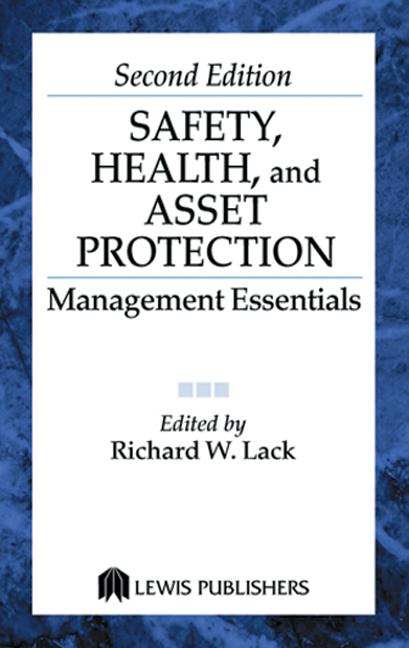Accidents involving planes, trains and automobiles – and the investigations into their causes – were among the top safety stories featured on ISHN.com this week.
NTSB: Plane that crashed in Alaska was overweight
The National Transportation Safety Board (NTSB) has found that the probable cause for the crash of a de Havilland DHC-3 in Soldotna, Alaska, on July 7, 2013, was the operator’s failure to determine the actual cargo weight, leading to the loading and operation of the airplane outside of its weight and center of gravity limits.
DuPont settles with one victim’s family in fatal Texas gas leak
DuPont has settled one of the lawsuits brought by the families of four workers killed in a fatal gas leak at DuPont's La Porte plant in November, 2014, according to the Houston Chronicle.
VW’s rigged emissions tests could result in nearly one million tons of air pollution annually
Volkswagen’s rigging of emissions tests for 11 million cars could mean the company is responsible for nearly 1 million tons of air pollution every year, roughly the same as the UK’s combined emissions for all power stations, vehicles, industry and agriculture, according to a report in the London newspaper, The Guardian.
Icelandic volcanic spewed 3X as much toxic gas as all man-made sources in Europe
Toxic gases from the Icelandic volcano that erupted in August 2014 and continued until February 2015 spewed three times as much toxic gas than all man-made sources in Europe, according to new research.
CSB wraps up investigation into 2009 blast at petroleum facility in Puerto Rico
Report finds inadequate management of gasoline storage tank overfill hazard
The US Chemical Safety Board (CSB) has voted on the final investigation report into the 2009 massive explosion at the Caribbean Petroleum, or CAPECO, terminal facility near San Juan, Puerto Rico; the report includes recommendations for addressing regulatory gaps in safety oversight of petroleum storage facilities by the Occupational Safety and Health Administration (OSHA) and Environmental Protection Agency (EPA).
A FairWarning story
For big railroads, a carload of whistleblower complaints
By Stuart Silverstein Brian Joseph
As both a veteran railroad worker and union official responsible for safety, Mike Elliott became alarmed when he learned of trouble-plagued train signals in his home state of Washington. Signals, he said, at times would inexplicably switch from red to yellow to green – potentially creating confusion that could lead to a crash. Elliott raised that and other signal issues repeatedly with his managers at BNSF Railway Co.
NTSB: Safety drills were done on doomed cargo ship El Faro
In its continuing investigation of the sinking of the cargo ship El Faro in the Atlantic Ocean near the Bahamas, the National Transportation Safety Board has developed the following factual information:
Traffic deaths a big problem worldwide
Some 1.25 million people die each year as a result of road traffic crashes, according to the WHO's Global status report on road safety 2015, despite improvements in road safety. “Road traffic fatalities take an unacceptable toll – particularly on poor people in poor countries,” says Dr Margaret Chan, Director-General of WHO.
Technology is reshaping industries, job markets in Middle America
The U.S. Chamber of Commerce Foundation says North Dakota is the state most likely to thrive in the rapidly evolving science, technology, engineering and math (STEM) focused economy.
DOT announces unmanned aircraft registration requirement
New task force to develop recommendations by November 20
U.S. Transportation Secretary Anthony Foxx and FAA Administrator Michael Huerta yesterday announced the creation of a task force to develop recommendations for a registration process for Unmanned Aircraft Systems (UAS).
OSHA finds improper load rigging caused fatal worker injury in Nebraska
OSHA's Omaha Area Office cited a drilling contractor based in Riverside, Missouri for three for three serious safety violations, after a 42-year-old worker was fatally injured on a job site in Lincoln, Nebraska on June 24, 2015.
ASSE applauds two universities who received ABET accreditation
Two more occupational safety and health academic programs have recently been awarded ABET accreditation. Receiving the accreditation for the first time are East Carolina University’s MS in Occupational Safety and Illinois State University’s BS in Safety.
2014’s most absurd excuses for calling in sick
CareerBuilder says percentage of workers calling in sick when they’re not is up
Whether it’s to finish binge-watching their latest Netflix obsession, take care of personal errands or simply needing a day off, many workers aren’t above taking a sick day despite having a clean bill of health.
Clues to opioid abuse from state prescription drug monitoring programs
CDC urges early treatment of severely ill and high-risk patients
Drug overdose is the leading cause of injury death in the United States – mostly due to abuse and misuse of prescription opioid pain relievers, benzodiazepines (sedatives/tranquilizers), and stimulants. Information from state prescription drug monitoring programs (PDMPs) can be used to detect and measure prescribing patterns that suggest abuse and misuse of controlled substances, according to a report released today in the Centers for Disease Control and Prevention’s (CDC) Morbidity and Mortality Weekly Report (MMWR) Surveillance Summary.
Inside corporate America’s campaign to ditch workers’ comp
One Texas lawyer is helping companies opt out of workers’ compensation and write their own rules. What does it mean for injured workers?
By Michael Grabell and Howard Berkes
Standing before a giant map in his Dallas office, Bill Minick doesn’t seem like anyone’s idea of a bomb thrower. But backed by some of the biggest names in corporate America, this mild-mannered son of an evangelist is plotting a revolution in how companies take care of injured workers.
First aid guidelines get an update
The American Red Cross and American Heart Association announced changes to guidelines for administering first aid. Among the most noteworthy revisions are new and updated recommendations for the treatment of bleeding; recognition of stroke; recovery position; anaphylaxis (severe allergic reaction) and treatment of hypoglycemia (low blood sugar) in diabetics.
Bag manufacturer exposes workers to amputation hazards
OSHA cites Bancroft Bags Inc. in West Monroe, Louisiana; fines total $84K
Bancroft Bags Inc. in West Monroe, Louisiana has been cited for failing to guard machinery and implement appropriate shut down procedures, Bancroft was cited for 16 serious violations by OSHA.





